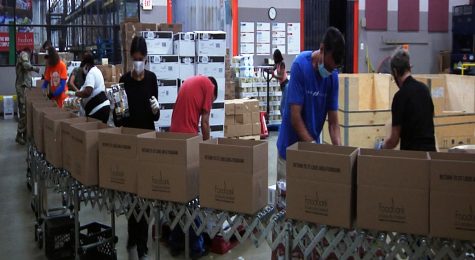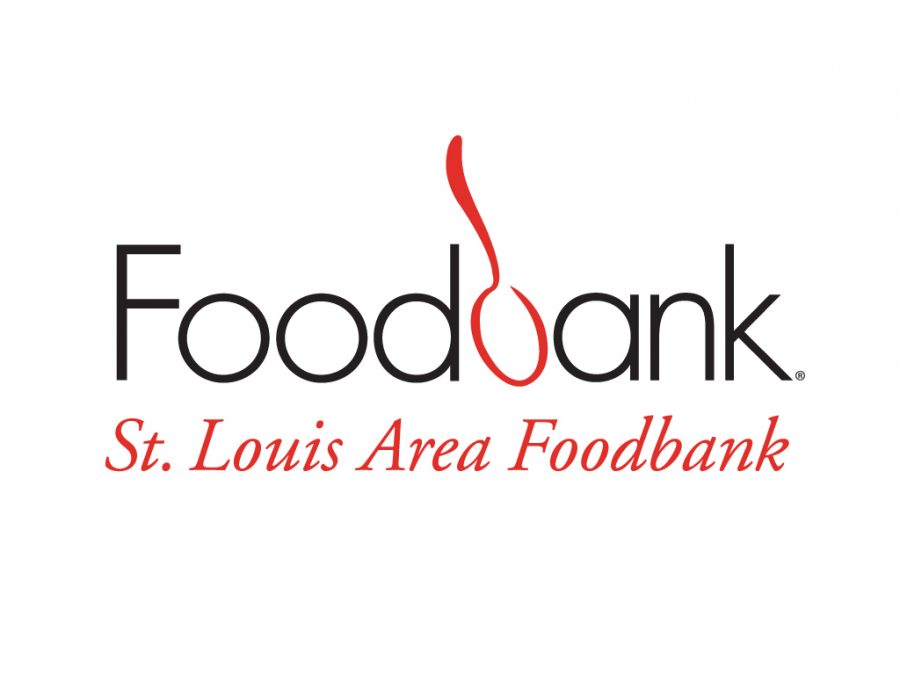Local area food banks are leading the charge to combat food insecurity in America
November 30, 2020
As COVID-19 continues to rapidly change how Americans live their lives, food insecurity is becoming a major issue for many American families.
According to Feeding America, a national network of non-profit food pantries, as many as 54 million Americans could be food insecure by the end of 2020 due to the COVID-19 pandemic. As many families are lining up their cars at food pantries, one local organization is doing its part in fighting this issue.
The St. Louis Area Food Bank is experiencing increased demands in supplies from families needing food assistance due to high unemployment rates in the area as a result of COVID-19.
Operating since 1975, the St. Louis Area food bank in Bridgeton, Mo. has been distributing food to local charitable partners like food pantries, soup kitchens and homeless shelters in 26 counties across the bi-state region.
Ryan Farmer, the Director of Marketing for the St. Louis Area Food Bank, said as a result of increased unemployment, the organization has seen a 40 percent in food distribution this year.
“Hunger can affect anyone, but anyone can affect hunger,” Farmer said. “We’re all one life event away from needing food assistance.
“We’ve seen great support, but when you’re talking about a pandemic, no one has that crystal ball to know how long this is going to last. It may be months or possibly years before [the St. Louis Area Food Bank] is truly back to normal.”

Vicki Voss, a volunteer for the St. Louis Area Food Bank, said because of the large amounts of people struggling to keep food on the table for their families, she wanted to fend a hand in decreasing this problem.
“Hunger doesn’t take a vacation,” Voss said. “It doesn’t take a break. It doesn’t take off for COVID. We all need to eat and there are hungry people out there. We all need to think about each other and we need to serve and care for one another.”
In March, Congress passed the CARES Act, which was aimed to provide emergency assistance to millions of Americans affected by the COVID-19 pandemic. In that same bill, over $15 million was given to the Supplementary Nutrition Assistance Program (SNAP) to offer food stamp benefits to needy families and $450 million to benefit food banks across the nation.
Although the CARES Act provided crucial benefits to helping hungry families, Farmer said he worries there will be more families needing food assistance as COVID-19 cases are rising and hundreds of thousands of Americans are still filing for unemployment claims. Congress has yet to pass another stimulus relief package into law aimed at helping those affected by the COVID-19 pandemic.
Whether it’s making a cash donation, donating food and essential household products, signing up for a volunteer shift at a local food pantry, or calling and writing legislators, Farmer said there are many meaningful ways people can help fight food insecurity in America.
“We’ve been continuously blown away by the support we receive from this community,” Farmer said. “I think people recognize that there are a lot of people hurting right now.”
Farmer said as of October, the St. Louis Area Food Bank delivered over 26 million meals this year to local families needing assistance.
“As long as there are hungry people, it’s important to support organizations like the St. Louis Area Food Bank so that we can continue to bring food into this area,” Farmer said.
For more information on how to get involved with the St. Louis Area Food Bank, visit their website.









